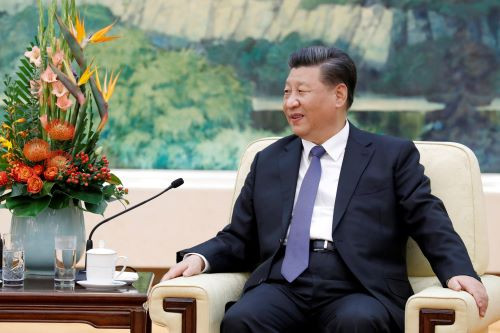Chinese President Xi Jinping has called for a resolute "diplomatic iron army" in a recent address to Chinese envoys in Beijing, signaling a return to the more assertive and confrontational stance known as "Wolf Warrior" diplomacy. In his speech, Xi emphasized the need for diplomats to be "loyal to the Party," to safeguard national interests with readiness, and to "defy strong powers" with a firm will. This shift comes amidst a period of diplomatic tensions with the Philippines and Japan and after a brief thaw in relations with the United States following his meeting with President Joe Biden.
Xi's directive is not merely rhetorical. He stressed the importance of adherence to Party discipline, using the word "strict" multiple times to emphasize the need for diplomats to maintain a strict alignment with party policies and principles. This call for discipline and loyalty comes in the wake of the removal of the previous foreign minister, Qin Gang, and amid rumors of an affair, highlighting the high stakes and internal pressures within China's diplomatic ranks.
In the broader context of China's foreign relations, Xi's speech at the Central Foreign Affairs Work Conference, a significant event in the nation's diplomatic calendar, underscores a clear directive: China must bolster its international influence to combat perceived containment and suppression by the West. This involves not just high-level diplomacy but also public diplomacy, with Xi urging officials to tell China's story in foreign languages and in ways that resonate internationally. He emphasized the need to win hearts, not just in "temples" but among the masses, pointing to a strategy that extends beyond formal diplomacy to cultural and people-to-people exchanges.
At the same time, Xi didn't shy away from criticizing the West, lashing out against "bullying" and "hegemony" and urging diplomats to carry forward a fighting spirit. This rhetoric, coupled with the renewed emphasis on a disciplined and combative diplomatic corps, suggests a China ready to assert itself more forcefully on the world stage.
This development is significant, not just for China's bilateral relations but for the broader landscape of international diplomacy. As tensions simmer in various hotspots around the world and as global power dynamics continue to shift, the impact of China's "diplomatic iron army" and its more assertive stance will be closely watched by friends and foes alike.






